How faith and spirituality shape modern Japan
The religious movement behind the grudge held by the man arrested for Abe’s assassination has cast a fresh light on how religion is perceived and practiced in the nation
Yukari Nozawa doesn’t think much about the myriad Shinto, Buddhist and even Christian customs she follows.
There’s the Bon holidays in mid-August, for example, when she visits her family grave in Niigata Prefecture to honor the souls of her ancestors believed to return from the netherworld. She has been invited to Christian-style weddings and has attended Christmas Mass in the past, the latter out of curiosity.
Just recently, she visited Tokyo’s Kanda Myojin Shrine for a purification ritual to dispel bad luck associated with her age. At 31 (or 32 in the East Asian system of age reckoning), she is maeyaku, or the year before what’s considered women’s yakudoshi — the age of misfortune, according to folk traditions.
Like many Japanese, however, Nozawa doesn’t consider herself religious. In fact, the word shūkyō (religion) has a rather negative connotation for her, evoking images of cults and followers of dubious or even dangerous beliefs, a notion amplified in recent weeks after the assassination of former Prime Minister Shinzo Abe by a man who held a grudge over the politician’s ties to the Unification Church, a global religious movement founded in South Korea that has been accused of being a cult.
“I believe perceptions toward the word ‘religion’ are quite different in Japan than overseas,” says Nozawa, a magazine editor for a publisher based in Tokyo.
In a country where Buddhist and Shinto rituals, as well as centuries-old folk beliefs and superstitions, are deeply ingrained in everyday life, “the term ‘religion’ can feel foreign and even associable with scary cults,” she says.
Nozawa’s views are hardly unique in Japan, a nation whose peculiar nature of religiosity can be difficult to grasp from a Western perspective, and a society in which faith and spirituality are both wide-ranging and highly personalized to the extent that a majority of the population don’t even consider themselves to be religious, despite their lives being steeped in various rites and practices derived from religious traditions.
Religiosity in a secular state
Take the Japanese National Character Survey published every five years by the Institute of Statistical Mathematics. One of the questions it asks respondents is whether they have any faith or beliefs. In the latest survey from 2018, only 26% said they did, with 74% answering that they don’t. In fact, this ratio has been largely unchanged since the report began including the question in 1958.
The same report, however, also asks if people think having a “religious mind” is important. 57% answered “yes” in the 2018 survey, compared to 24% who answered “no.” What’s behind this discrepancy?
“The Japanese people are often perceived as being nonreligious, but that’s not the case,” says Norichika Horie, a professor of religious studies at the University of Tokyo. “They just don’t describe it as ‘religion.’”
Horie points to how the concept of shūkyō has a rather short history, entering the lexicon when it was borrowed from Buddhist terminology during the early Meiji Period (1868-1912) as a translation of the English word “religion.”
Meanwhile, the separation of the church and state by the Meiji government introduced the idea that Shinto shrines weren’t religious but secular in their nature — a concept linked to imperial Japan’s state Shinto ideology that enforced the notion that Shinto, which is an ancient system of animistic beliefs and customs, is nonreligious and rather a patriotic practice and thus not a violation of freedom of religion.
Following World War II, however, the occupation forces issued the Shinto Directive to abolish state support for Shintoism, which they regarded as functioning as a propaganda tool fueling ultranationalism.
In 1951, Japan established the Religious Corporations Ordinance to confer legal capacities to religious organizations. Under the decree, these groups were defined as those “whose main purpose is to spread religious doctrines, hold ceremonial events, and educate and nurture believers.”
But this definition, while neutral in language, may sound rather unfamiliar and even alien to the average Japanese person who doesn’t particularly identify themself with any religions or sects, Horie says.
“Annual Shinto rituals and ‘funeral Buddhism’ aren’t considered ‘religion’ among the Japanese,” he says. The latter refers to how most Japanese conduct Buddhist funerals and memorial services, while those who live in the city only occasionally partake in Buddhist activities or doctrines.
Meanwhile, folk beliefs associated with annual Shinto rites and funeral Buddhism have been practiced in everyday life, and therefore have not been regarded as religious, but as ordinary and vernacular, he says.
Their animistic or shamanistic features have taken a new guise as occultism, spiritualism and the new age movement from the West successively intertwined, leading to more contemporary forms of spirituality.
“These are all ‘nonreligious’ activities rooted in religion,” he says. “They’re safe, and can be practiced at ease, and that’s how traditional religion has been preserved in Japan.”
Meanwhile, the negative image associated with religion may intensify following Abe’s murder and the publishing of details regarding his connection with the Unification Church, Horie says.
Interest in religion and religious activities have already taken a hit during the pandemic, he adds, as travel restrictions and social distancing measures saw many Japanese refrain from visiting shrines and family graves.
“Still, this could be temporary. Similar phenomena have been observed in the past in the aftermaths of major events, including the Great Hanshin Earthquake in 1995 and the Great East Japan Earthquake in 2011,” Horie says. “Surveys have shown that religious awareness dips, but then recovers as peace returns to society.”
Spirituality boom
Those who grew up in Japan during the 1970s — at the tail end of the nation’s postwar economic miracle — may recall the flurry of occult magazines and television shows featuring anything from hauntings and spectral sightings to unidentified flying objects and psychokinesis.
Often dubbed the “golden age of the occult,” the period saw children and adults alike transfixed by Israeli spoon-bender Uri Geller, the prophecies of Nostradamus, cryptids such as the Loch Ness Monster and kokkuri-san, Japan’s equivalent of the ouija board, to name a few.
Shelves in bookstores were filled with new age literature and spiritual self-help books. Zen became a worldwide phenomenon. Sakyo Komatsu penned his best-selling apocalyptic novel “Japan Sinks” and “The Exorcist” smashed box-office records. Urban legends such as Kuchisake-onna (Slit-Mouthed Woman) began to be widely circulated.
This was also a time when so-called new religions — including Tenrikyo (founded in 1838), Seicho-no Ie (founded in 1930) and the Church of World Messianity (founded in 1935) — saw their membership soar to unprecedented heights.
“But even amid the new religion boom in the 1970s, the vast majority of Japanese weren’t part of these religions,” says Ryosuke Okamoto, an associate professor at Hokkaido University and the author of “Shukyo to Nihonjin” (“Religion and the Japanese”).
“One interesting aspect of faith in Japan is how Shinto is community-based while Buddhism is household-based. They co-exist, and people don’t question that at all,” Okamoto says. “Only a small minority belong to other religions, including Christianity and newer organizations.”
That overlap is evident in the Agency of Cultural Affairs’ annual statistical research on religion, which shows that as of Dec. 31, 2020, there were approximately 88 million believers of Shinto and 84 million believers of Buddhism. Combined, that’s around 47 million more people than the entire population of Japan. Meanwhile, the agency counted roughly 1.9 million adherents of Christianity, and 7.3 million followers of other religions.
“New religions and cults are characterized by strong doctrines that upset commonly held values. But because of their distinct worldview, they are unacceptable to many Japanese,” Okamoto says. And that, he adds, may be one of the reasons why people flocked to spirituality and other less-assertive religious movements and practices.
That boom continued well into the 1980s and early ’90s when Japan’s asset price bubble burst, miring the nation in protracted economic stagnation.
Prime-time television ran shows featuring shamans and spiritualists conducting divinations, exorcisms and battling vengeful ghosts. Fortune-telling, including astrology and palm and tarot card readings, became popular among teenage girls, while a rise in young people believing in life after death and spiritual worlds provided fertile ground for various new religions to emerge.
Among them was Aum Shinrikyo, the doomsday cult whose long-haired, bearded guru, Shoko Asahara, made frequent appearances in media before the dangerous nature of the sect began to surface. On March 20, 1995, Aum orchestrated sarin gas attacks on the Tokyo subway system that killed 13 and injured around 6,000. The attacks triggered an outpouring of negative coverage and brewed general suspicion toward religion.
By the turn of the millennium, however, the popularity of spirituality saw a resurgence, albeit in a gentler form with emphasis toward individual happiness. A key figure in the movement was Hiroyuki Ehara, a soft-spoken and self-proclaimed spiritual counselor and television personality who read people’s auras as well as previous lives and relayed positive messages from their deceased loved ones.
There was criticism at the time, however, that these programs and so-called spiritual businesses could serve as gateways exposing the public to more dangerous cults.
In 2007, the National Network of Lawyers Against Spiritual Sales submitted a request to the Japan Commercial Broadcasters Association and public broadcaster NHK, among other key stations. The group asked that broadcasters take caution when running programs dealing with topics such as spirituality and the afterlife that lack any objective basis, as it could misguide viewers and make them susceptible to religion-related scams.
The lawyers raised the Unification Church as an example, claiming the organization was showing Ehara’s programs to its followers in order to spread its doctrine and solicit more donations in the name of saving the souls of their suffering ancestors.
“What we saw from the 1970s and onward was a transition from new religions to spirituality, and from salvation to healing,” Okamoto says. “But what remains is that most Japanese are rather naive and lack immunity toward religions and cults.”
New versus old religions
By no means has religion, both old and new, ceased to loosen its influence on Japan’s socioeconomic and political spheres.
The Association of Shinto Shrines, which represents the roughly 80,000 shrines in the nation, and its lobbying arm, the Shinto Association of Spiritual Leadership, have been actively pushing conservative political agendas, including Constitutional revision and education reform.
Political party Komeito, founded by lay Buddhist organization Soka Gakkai in 1964, has been serving as the ruling Liberal Democratic Party’s junior coalition partner. While having formerly separated from the religious group, Soka Gakkai remains the party’s major electoral constituency.
And the Unification Church’s ties with politicians run deep, with Abe’s grandfather and former Prime Minister Nobusuke Kishi reportedly having forged a close relationship with the organization’s founder, Sun Myung Moon.
Founded in 1954, the group’s membership in Japan took off in the 1980s when it also made headlines in relation to “spiritual sales” that cajole people into buying exorbitantly priced goods that supposedly possess supernatural benefits. The organization’s activities attracted renewed scrutiny in the late 2000s following a series of arrests in connection to such sales.
“Looking at recent media coverage of the church, it seems many have forgotten that history,” says Tatsuya Yumiyama, a professor of religious studies at the Tokyo Institute of Technology.
Compared to the country’s spiritual heyday, however, many new religions — including the Unification Church — have been losing substantial numbers of followers and influence, he says.
During the Upper House election last month, for example, Komeito received approximately 6.18 million votes in the proportional representation district, down around 930,000 votes from last year’s Lower House elections.
The cultural affairs agency’s annual statistical survey shows that membership of new religions including Tenrikyo, Rissho Kosei Kai (founded in 1938), Reiyukai (founded in 1920) and the Church of Perfect Liberty (founded in 1916) have all declined in recent decades.
“In fact, most new religions have been suffering losses since the 2000s,” Yumiyama says.
Meanwhile, cults and other questionable groups have been luring students on university campuses, prompting educational institutions to warn students of being recruited into suspicious extracurricular activities.
“My university conducts awareness-raising as well,” Yumiyama says. “Cults, self-enlightenment programs and network marketing schemes all share a similar structure and target vulnerable students who harbor doubts about their future.”
That sense of uncertainty, perhaps stemming from Japan’s prolonged economic doldrums, may be behind the fascination toward new forms of religiosity such as mindfulness meditation and visiting “power spots” — shrines, temples, mountains and other mystical energy sources.
The question remains, however, whether the Japanese population can be described as religious.
“I don’t think there’s a more religious people in the world than the Japanese,” says Hidenori Ukai, a journalist and Buddhist priest who heads the Shogakuji temple in Kyoto.
“Look at how bullet trains are packed and traffic congested during the Bon holidays with people returning home en masse to their family graves,” he says. “The Gion Matsuri in Kyoto last month was teeming with festival-goers, and don’t forget matsuri (festivals) in Japan are religious by nature.”
There’s a saying that people in Japan are born Shinto, marry Christian and die Buddhist. While the proverbial phase is often used to describe the country’s religious paradox, it shows how religious rituals and practices can be observed in many facets of society.
“The Japanese aren’t conscious of their religiosity,” Ukai says. “That’s because it’s so ingrained in their lives.”


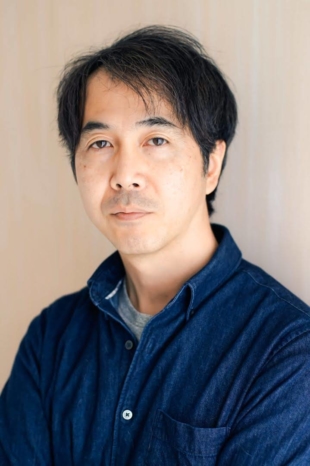
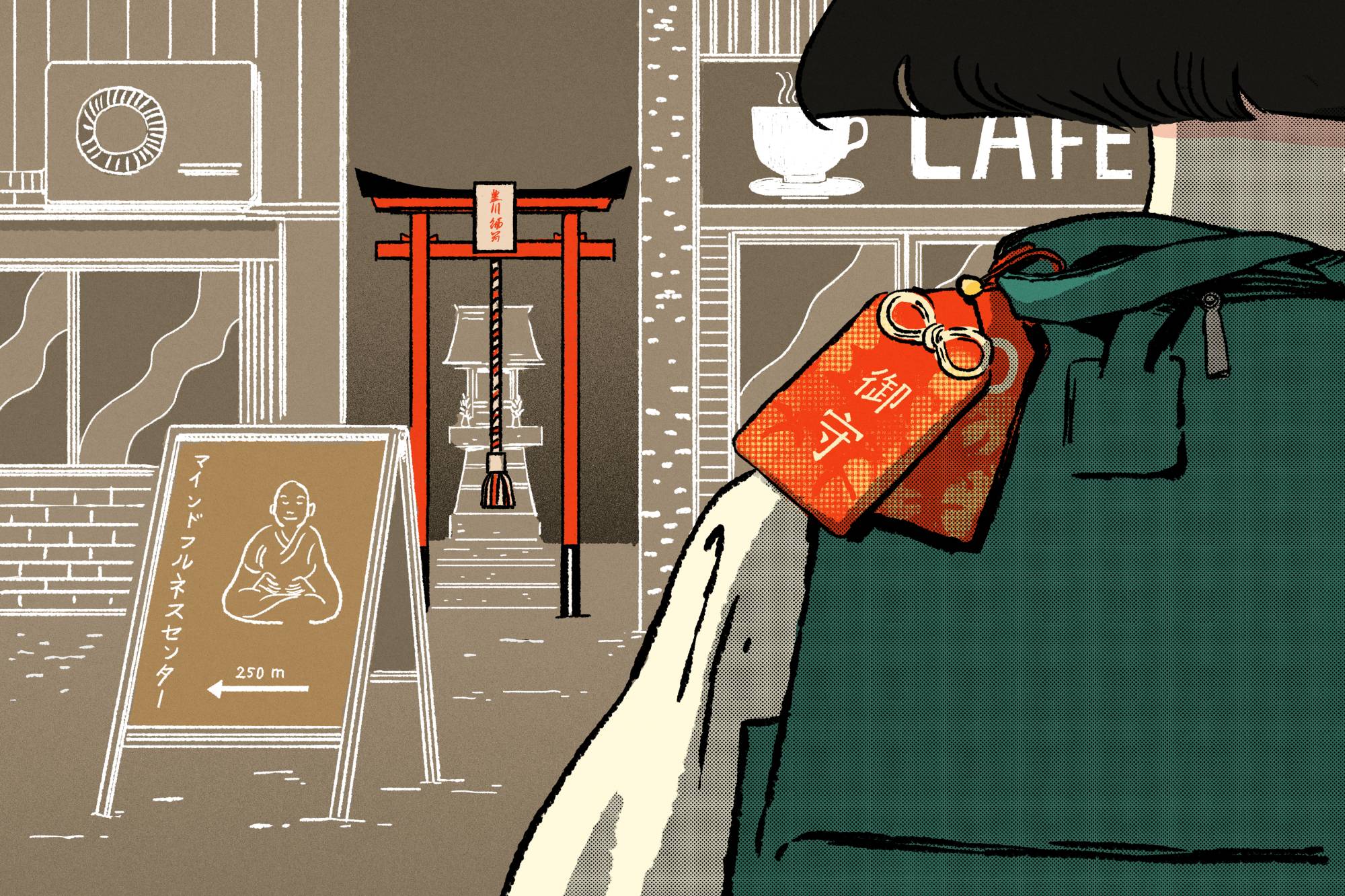
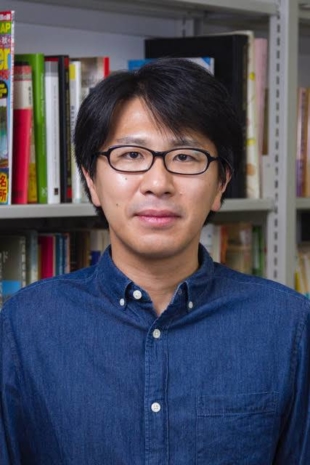
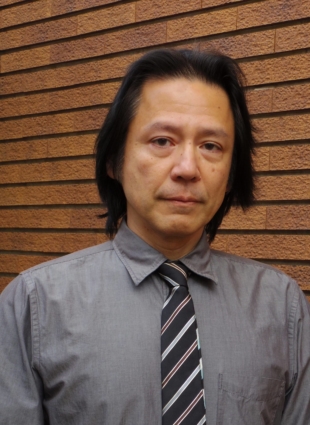
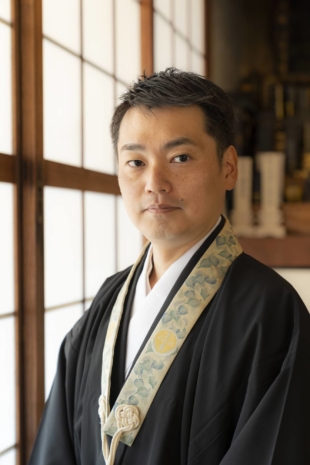




 Audible sample
Audible sample
